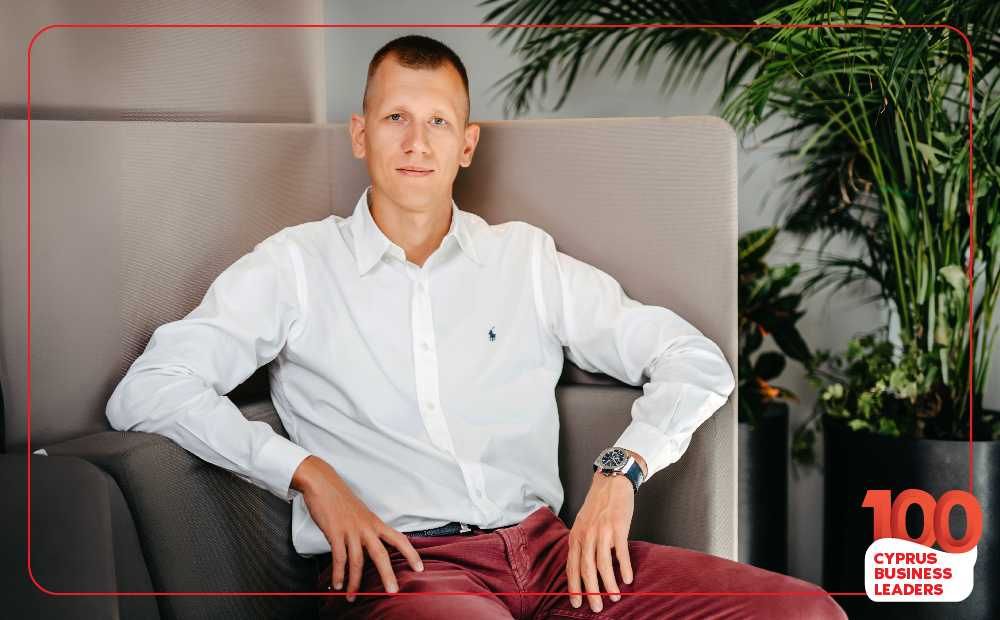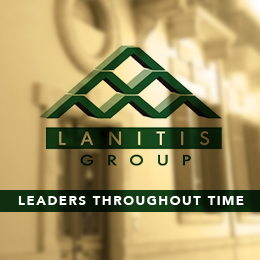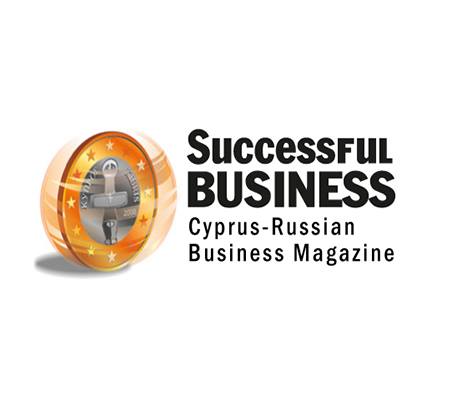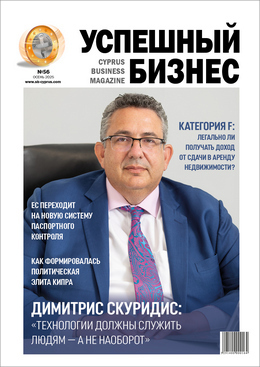Alexander Vasekin is the CEO of Adtech Holding, an international group of companies operating in the field of advertising technologies and digital monetisation. For over 20 years, he has been building projects in adtech, combining technical expertise with an entrepreneurial approach to scaling digital products. Based in Cyprus for more than seven years, Alexander found here a new rhythm and resilience that have influenced both his personal and professional mindset. In this interview, he speaks not only about his career, but also about leadership, trust and the balance that helps maintain clarity and energy in an ever-evolving world.
Let us start at the very beginning. What was the turning point when you realised you didn’t just want to work in business but to build your own ideas and lead others?
It probably all started with my first website. I was 16, added a banner on it, and on that very same day I started making money. That was a real turning point – the feeling that you could create something of your own and instantly see the result. Since then, I’ve always been in the digital space – advertising, monetisation, tech. Back then, we didn’t even have the terms that are common today, but we were already experimenting, launching, testing. There was a lot of freedom and drive. I went from developer to business owner, building ecosystems. That journey taught me to think big, to observe systems from above, while still staying open to experimentation.
When did you first see yourself not as a specialist, but as a leader – someone around whom teams, strategies and directions begin to form?
It happened when I started building my own team of developers. I had more work than I could manage alone, so I began bringing in people I could share tasks with. That’s when I realised that it’s not just about doing a job well – it’s about building processes, coordinating, motivating, and taking responsibility. Leadership doesn’t happen overnight. It’s more of an organic shift. You just keep doing what you love – only now, you're not doing it alone. The form changes, the tasks evolve, but the energy remains the same. That’s what brings people together.
Adtech has remained the core of your professional life for many years. What keeps you in this field – and what drives you to keep pushing it forward?
Adtech is a space where I feel naturally at home. It’s a mix of technology, analytics, scale and constant movement. Everything keeps shifting – formats, strategies, monetisation models, user journeys. That kind of dynamic really suits me. I’ve never been drawn to rigid or conservative structures – I enjoy looking for new areas of growth. Also, we’ve built up a solid body of expertise in this space. We understand how the market works, how to manage traffic, how to build product architecture. That allows us to launch stable projects and rapidly test new ideas. It’s this combination of experience, experimentation and freedom that keeps me here.
What has been the most difficult part of growing into your role as a leader – not in terms of delivering results, but from a personal, inner perspective?
The hardest thing has been accepting different speeds and ways of working. When you build a team, you want everyone to be as fast and forward-thinking as you, to match your pace and precision. But that’s an illusion. People are different – and that’s their strength. Some are great at systems, others at creativity, others thrive in routine. Recognising that – and letting go of the idea that everyone should work like you – was a key milestone for me. Leadership isn’t about control. It’s about shaping an environment where each person can thrive and contribute to the bigger picture. And that takes time, patience, and a lot of careful tuning.
How has living and working in Cyprus – with its mix of international and local perspectives – influenced your leadership style and decision-making?
I’ve been living in Cyprus for more than seven years now, and it has definitely shaped me as a leader. The rhythm here is different – much more measured and calmer, even if you’re working in a high-tech space. It doesn’t mean things move slowly – it means you develop more resilience, you react less to the noise, and you focus more on what really matters. I used to be sharper – not in my actions, but in my mindset. Everything had to be done urgently, at 120 percent. Now I know that sometimes it’s better to pause, breathe, reflect – and only then act. That kind of inner discipline has grown in me here.
When the usual markers disappear and uncertainty sets in, what do you rely on first – experience, intuition or core principles?
In such moments, it is crucial to avoid hasty decisions. I try to rely on a systematic approach – analysing the numbers, tracking dynamics and applying common sense. Experience helps me stay composed and avoid panic, while intuition often points towards possible solutions. My core principles act as a kind of filter: if you are clear from the outset that you will not compromise your fundamental values, the decision-making process becomes much simpler. True stability does not always come from external circumstances – more often, it comes from within. The key is to maintain clarity of thought, even when the world around you feels like a storm.
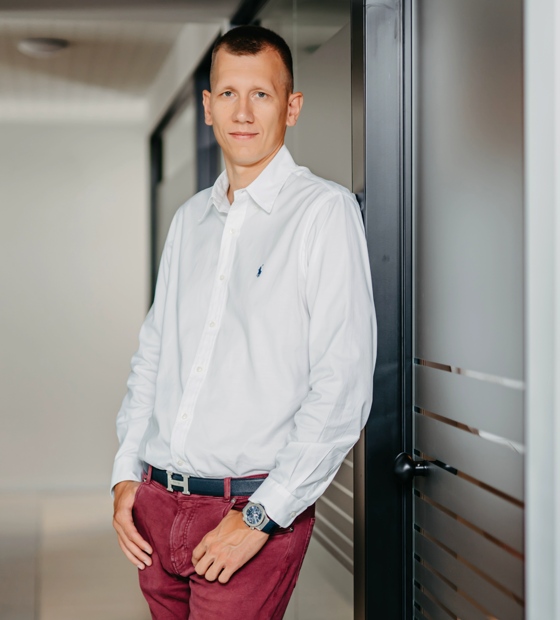 Has there been a project that became a turning point for you – not in terms of financial success, but because it changed the way you saw your work or yourself?
Has there been a project that became a turning point for you – not in terms of financial success, but because it changed the way you saw your work or yourself?
Yes, there was one project we launched that started off strong – good traffic, solid product growth. But at a certain point, we realised we weren’t hitting the monetisation model, the team was stretched thin, and the momentum had turned into burnout. That’s when I understood that even a great product and a strong team don’t guarantee success. Sometimes you need to step back, reassess your goals, and preserve relationships. It taught me to value sustainability and quality of life – not just outcomes.
Trust is often called the most valuable asset in business today. What does it mean to you to build trust – and how do you make it a lived reality, not just a statement?
Trust starts with transparency. If you give honest feedback, don’t promise the impossible, admit your mistakes – you create a space where people feel safe. In our company, we don’t operate on pressure. We try to speak clearly and directly. People need to know that you’re not just chasing results – you’re there to support, guide, adjust. Trust isn’t about friendship. It’s about respect for people’s efforts and boundaries. And it has to be visible in daily actions – not only during strategic sessions.
How do you decide when to take a risk – and when to pause and reassess?
I’m not a fan of blind risk. I always look at the numbers and try to build a simple model – what’s the outcome, what’s the input, what are the alternatives? If the numbers work and I feel confident – I move forward. If I have doubts, I don’t ignore them. Better to stop and rebuild the plan than to drag along something broken. A pause isn’t always weakness – sometimes, it’s just smart strategy.
What subject or challenge inspires you most today – something that sparks your interest as both a professional and a person?
Definitely it is artificial intelligence. The speed at which it’s becoming part of daily work is astonishing. We’re already testing various models – from content generation to automated decision-making. But what’s most fascinating is not the tech itself – it’s how it changes the way we think. AI becomes a kind of partner. It doesn’t replace you – it amplifies you. And that opens up massive opportunities, especially for small and medium-sized businesses. I’m curious to see how markets, professions and organisations will evolve. It’s a challenge that energises me.
What helps you stay balanced in a fast-paced work life? Do you have personal habits or practices that help you reconnect with yourself?
Shifting focus really helps. I try to build some physical activity into each day – even a short workout or walk. Sometimes I just switch off my phone for a couple of hours. I also wear a ring that tracks pulse, sleep and activity – not just as a gadget, but as a reminder that my body and mind need attention. I try not to go into the red zone. If I feel drained, I pause. Balance is about consistency – better to recharge a little every day than to burn out and recover in crisis mode.
Imagine a book is published about your journey ten years from now. What question should it ask – and what message would you want to leave with the reader?
Maybe the question would be: "Can you build a business and still stay in harmony with yourself?" And I’d like the answer to be: yes, you can. You can be effective, ambitious, launch great projects – and still remain human. For me, that’s not abstract philosophy – it’s a very practical guide. Business is part of life, not a separate race. And if you’ve managed to integrate those things – then it was all worth it.
Interview by Kateryna Bila
#SB100Leaders
